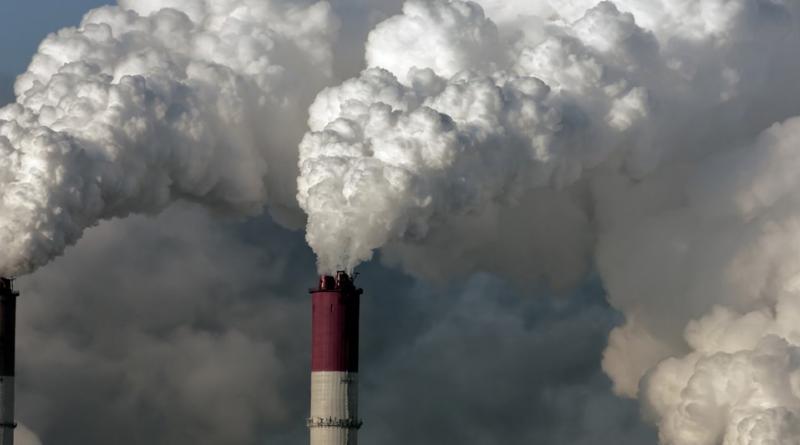Carbon debate lacks honesty.

Oxford academic says current decarbonisation efforts are a failure and calls for a global price for carbon
University of Oxford professor and economist Dieter Helm is not afraid of voicing strong views on climate change, telling us what he sees as uncomfortable truths and proposing radical solutions.
His address at May's Flame gas conference in Amsterdam was no different. Helm posed a number of questions regarding the current energy transition debate, while offering solutions that may be as unpalatable as they are necessary.
"How have we achieved so little decarbonisation with so much money spent and so much political will?" Helm asks. "Instead, we have been very good at ramping up targets." For Europe, the Kyoto Protocol was "not particularly demanding", given its 1990 baseline and the post-Communism de-industrialisation of central and eastern Europe. But we are not on the path to limiting temperature increase to 2°C, says Helm, "so let us have 1.5°C instead". And net zero is now "vastly more radical" than the Paris Agreement.
The 30 years since Kyoto have been "as good as it has ever been for the fossil fuel industry", says Helm. Net zero has gone up the political agenda, although the economist is not alone in seeing irony in Hollywood actor and activist Emma Thompson's carbon-intensive flights from Los Angles to London and back to join the Extinction Rebellion protests, a trip that would be "impossible" under the reduction targets and timetable proposed by the group.
Extinction Rebellion has good people with a good point, says Helm. We are on a path to 3/4/5°C higher and taking out most of the world's biodiversity hotspots and we should take its position very seriously, he says. "Its motivations are good, to tackle climate change and global warming [these are the same?]."
Unrealistic aims
But its target of net zero by 2025 is "inconceivable", given it would involve, in just four or five years, a switch almost entirely to renewables and virtually no aviation or vehicular transportation except by electric cars. We would also have to close the remaining manufacturing base, both in the UK and Europe, says Helm.
The lack of realism and honesty in the debate is a source of significant frustration to Helm. "We need to honestly tell people that their standard of living is going to fall by quite a lot, because they are living beyond their carbon means," he says.
1000GW — China's installed domestic coal capacity
He is also scathing about the UK's Committee on Climate Change's May report, which suggested that the country's GDP would be reduced by just 1-2pc per annum if it moved to being carbon neutral by 2050. "Really?" asks Helm incredulously. "We can switch to a carbon neutral economy and be only slightly worse off, or even better off?"
Instead, there will be "a very significant price" to the energy transition, Helm predicts, and we "need to tell the truth" about these costs.
Europe as a whole is "a million miles from net zero" on CO2 production, never mind consumption, Helm warns. Germany is not planning to fully phase out coal until 2038, so there will be another 20 years of the dirtiest form of generation. And its much-vaunted Energiewende — despite consumer willingness to pay much higher bills than elsewhere — cannot meet its 2020 targets. "[The Energiewende] is not the way to go about a climate strategy," says Helm. "It has not been a success, it is not a role model."
Populist opposition
And Europe's ability to make any further progress on the energy transition may be threatened by another political challenge — the rise of populism. Referencing the gilets jaunes protestors, "there are greater numbers on the streets of Paris complaining about higher carbon prices than there are protesting about climate change," says Helm.
With the exception of Austria, all of Europe's right-leaning nationalist parties hold a climate sceptic position. And Helm expects their voices will grow louder. "There is going to be more revolt on the right — they want more consumption" he says.
Supporters of these parties are largely out of step with, and often angrily opposed to, a millennial generation that has much more appetite for reducing consumption and accepting a lower standard of living in order to be more environmentally friendly. In Germany, support for the far-right AfD has already led to politicians in various hues seeking a less ambitious Energiewende, says Helm.
Global problem
But Europe is inherently a sideshow globally, particularly given its continuing trend for de-industrialisation. That offers its own problems, not least because outsourcing production to China and then importing finished products probably increases the overall global carbon footprint.
Helm poses another pressing question. "If Europe is de-industrialising, what is going to produce the value-add that pays the taxes, pays for the social security?" he asks. In contrast, the US is reshoring its industry, in part because of cheap shale energy, but also because advances in technologies such as robotics, AI and 3D printing are eroding the advantage of cheap labour elsewhere in the world.
And it is achieving this industrial growth, says Helm, while having a better carbon consumption footprint than Europe — despite not ratifying the Paris Agreement, or being likely to under the current administration — driven by its coal-to-gas switch.
China is also reducing the percentage of coal in its energy mix, as it invests in renewables and ups its gas imports. But Helm presents some sobering figures: 1000GW of installed domestic coal capacity, 200GW of new domestic coal capacity under development and 200-700GW of new Chinese coal capacity abroad. "China is not reducing its overall coal-fired output," he says.
And the global picture is gloomy elsewhere. India's energy mix is 80-90pc fossil fuel-based, says Helm, while Africa, albeit not inheriting a conventional energy infrastructure, is also building lots of new coal-fired capacity and is seeing soil erosion and loss of biodiversity from the expansion of agriculture. Brazil has similar problems as agriculture encroaches on its rainforest.
Population and economic growth also present challenges. The world is projected to have three billion more people by 2100, equivalent to the whole global population in 1955, says Helm. And China, India, Africa and some other large developing nations are forecasting 6-8pc per annum growth. Compounded, that magnitude of growth means a country's economy doubles in size every ten years, and, even if some falter, there are enough big economies growing at that rate to be significant, says Helm.
"So, we have to decarbonise another China, India and Africa by 2030 on top of what we have to do already," he says. "Work out the likelihood of that happening."
Consumption tax
Helm proposes solutions alongside his bleak prognosis. We need to change the question to what Europe can do to reduce global emissions, not what Europe can do to reduce European emissions, he says.
The most obvious answer to the latter question is to change Europe's focus from instruments such as the EU emissions trading scheme (ETS) that look at CO2 production to CO2 consumption. "Politicians focus on what they can do without hurting the electorate, so they focus on production," says Helm.
"Making the consumer pay, that is good economics," he continues. "The transition will be painful. It is a lie that the energy transition will be painless. We have to look globally because it is a global problem." Helm advocates a common price for carbon across the world and, crucially, across all industries, so the mechanism is not influenced by any particular lobby group. "Globally, it is a distortion that some in the economy have to pay for carbon and some do not," says Helm.
"How have we achieved so little decarbonisation with so much money spent and so much political will?"—Helm
While the idea of a global carbon price seems at first glance unrealistic in an increasingly polarised world, Helm is undeterred, again arguing on economic grounds. "If Europe introduced a carbon consumption tax, would China prefer to pay Europe on its imports, or harmonise its own approach to pricing carbon and pay itself?" he asks.
European regulatory evolution is also a must, in Helm's view. "The internal energy market is not an appropriate framework for a carbon-neutral energy industry. It is the right answer to the question from 1990-2015," he says. "It will have to change."
Europe should instead concentrate on lower hanging fruit. "We should spend money on the things that make the most difference. Reducing the carbon footprint from agriculture, which is right up there in terms of both climate change and biodiversity loss, would be extremely low cost. Instead, Europe protects the farmers, which is economically nuts," says Helm.
His final question is, if Europe is only part of the global economy, what can it do to build on its comparative advantages? For Helm, R&D is the obvious answer. "We are good at science," he says. "We have a large R&D base, although not as good as the US — where is Europe's MIT, for example?
"Graphene is potentially world-changing. It was invented by two University of Manchester scientists, and the UK government has invested just £67mn into it. R&D is the hope of the world, it has to deliver if we are to decarbonise. The technological solutions we need do not yet exist. Spend the money on that first."
3 July 2019
PETROLEUM ECONOMY



